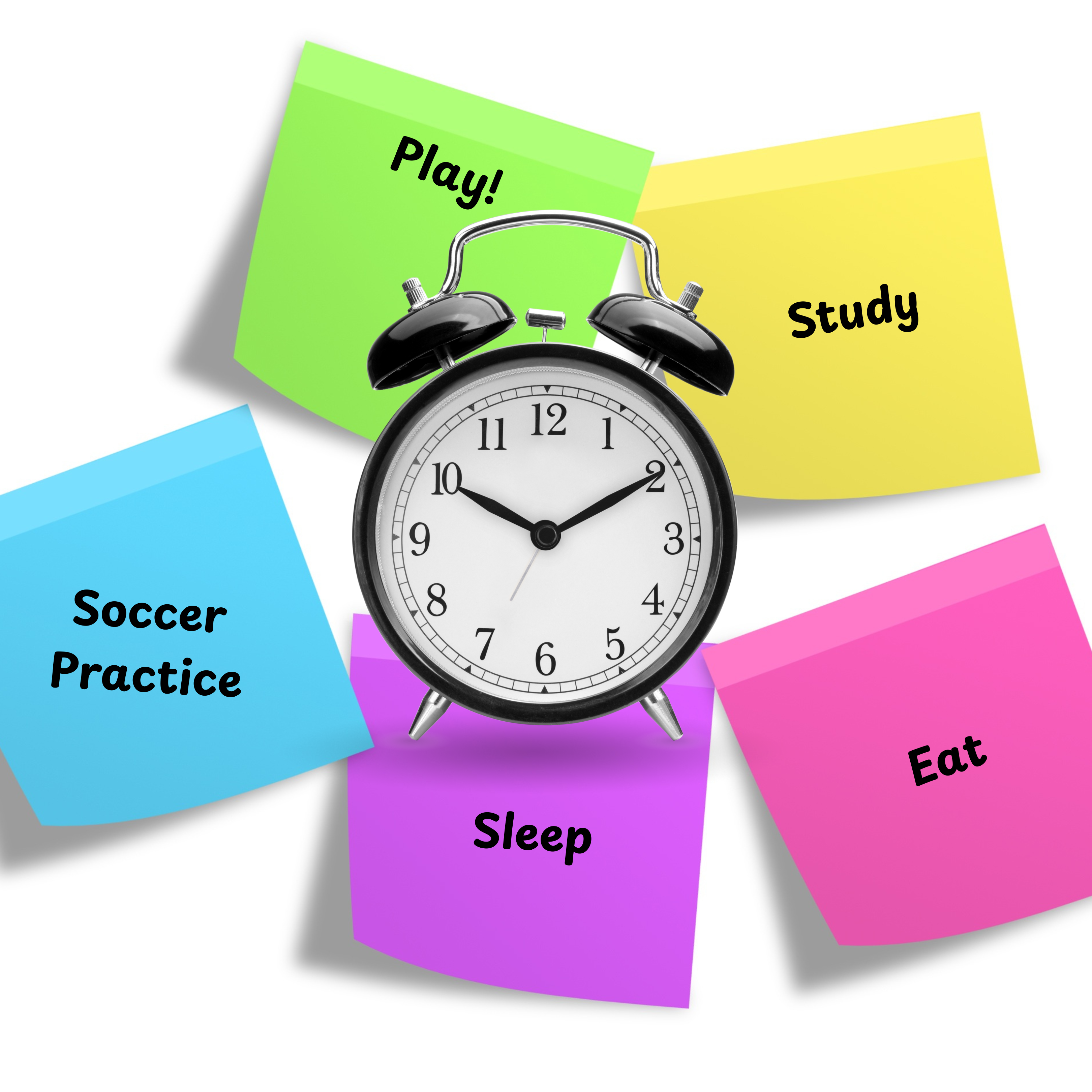

Being a youth athlete is exciting, rewarding, and full of growth opportunities. But with practices, games, homework, family responsibilities, and social life, balance can feel overwhelming. Learning strong time management skills early doesn’t just help on the field or in the classroom — it’s a life skill that builds resilience and confidence for the future.
Table of Contents:
- Introduction – Why Time Management Matters
- Prioritize What Matters Most
- Create a Weekly Schedule
- Use “Study Sprints”
- Communicate with Coaches and Teachers
- Sleep and Nutrition Are Non-Negotiable
- Don’t Forget Mental Health
- Closing Thoughts – Thriving On and Off the Field
Prioritize What Matters Most
Student-athletes juggle many responsibilities, but not everything has equal weight. Encourage your child to identify their top priorities: school, sports, rest, and family time. Writing out a weekly list helps them stay focused on what really matters, instead of feeling pulled in too many directions.
One practical strategy is to use the “Big Three” rule: each day, athletes should highlight the three most important tasks to accomplish. This helps them learn that it’s okay to say no to distractions when schoolwork or training must come first. Prioritization isn’t just about managing time — it’s about managing energy and making thoughtful decisions about where to focus.
Create a Weekly Schedule
Using a planner or calendar app makes a big difference. Map out practices, games, school deadlines, and study times. Seeing the full week helps avoid surprises and teaches students to plan ahead. Many athletes even schedule small blocks for rest and downtime to ensure they don’t burn out.
A good tip is to color-code the schedule: one color for school, one for sports, and another for personal/family time. This not only makes the calendar easier to read but also helps athletes see if they’re spending too much or too little time in one area. Consistency builds confidence, and a well-structured schedule can reduce stress while increasing productivity.
Use “Study Sprints”
Instead of long, unfocused study sessions, try shorter bursts of concentrated work (20–30 minutes) followed by a quick break. This strategy helps athletes maximize the time they do have while maintaining focus — especially on busy practice or game days.
These sprints can be paired with the “Pomodoro Technique,” where a timer is used to stay accountable. After two or three sprints, athletes can take a longer break or move on to practice with a sense of accomplishment. For student-athletes, this method is powerful because it mirrors their sports training: short bursts of intensity followed by recovery.
Communicate with Coaches and Teachers
Honesty and communication are key. If a big project or exam falls during a tournament, encourage your athlete to talk to their teacher or coach ahead of time. Most adults are supportive when they see the effort to plan and balance both responsibilities.
Building this habit teaches valuable life skills. Athletes who advocate for themselves learn responsibility, accountability, and respect for others’ time. It also reduces last-minute stress and prevents small conflicts from becoming bigger issues. Coaches and teachers are more likely to be flexible when they see a student taking initiative and being transparent about their commitments.
Sleep and Nutrition Are Non-Negotiable
No amount of time management works without rest and fuel. The World Health Organization emphasizes the importance of healthy routines, recommending 8–10 hours of sleep for teenagers and daily physical activity for children and adolescents. A well-rested and well-nourished athlete will perform better academically and athletically.
More from the WHO on healthy activity and lifestyle: https://www.who.int/initiatives/behealthy/physical-activity
Don’t Forget Mental Health
Balance isn’t just about managing schedules; it’s also about staying emotionally healthy. Encourage athletes to check in with themselves: Are they enjoying the sport? Do they feel overwhelmed? Open conversations about stress, breaks, and fun go a long way in keeping balance sustainable.
Remind them that taking a short pause or spending time with friends isn’t wasted time — it’s recovery. Just like the body needs rest after training, the mind also needs rest to stay sharp, motivated, and resilient.
Closing Thoughts – Thriving On and Off the Field
Time management is not about doing everything — it’s about doing the right things well. With good planning, open communication, and strong routines, youth athletes can thrive in school, sports, and life. At 12th Rock, we’re here to support families as athletes grow into well-rounded individuals on and off the field.
Learn more about our programs by calling 845-692-9092 or visiting https://12throck.org
